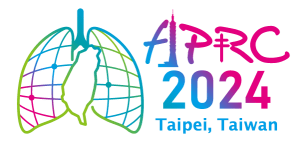Symposium 27:Rapid Molecular Diagnosis and Detection of Drug Resistance of TB: Critical Tools to Achieve the Goal of Ending TB
The World Health Organization (WHO) has recommended the use of rapid molecular tests as the initial diagnostic test in patients suspected to have tuberculosis (TB). The significant advances of molecular assays in detecting TB and performing drug susceptibility testing may play a critical role in achieving the goal of ending TB by 2030. This symposium will cover an overview of the most recent advances of molecular technology in diagnosis of TB, in detection of resistance to conventional and new anti-TB medications.
| Time (GMT+8) |
Topic | Speaker | Country / Region |
|---|---|---|---|
| 09:00-09:30 | Recent progress in the use of rapid molecular test for the detection of drug-resistant tuberculosis in the Philippines | Dr. Ramon Basilio | Philippines |
| 09:30-10:00 | Diagnosis of bedaquiline, delamanid, and pretomanid resistance | Dr. Sushil Pandey | Australia |
| 10:00-10:30 | Rapid molecular tests for tuberculosis and tuberculosis drug resistance | Ms. Ya-Yen Yu | Taiwan |
Recent progress in the use of rapid molecular test for the detection of drug-resistant tuberculosis in the Philippines
Abstract:
The Philippines grapples with one of the world’s highest tuberculosis (TB) incidence rates, contributing significantly to the global TB burden even before the onset of the COVID-19 pandemic. Amidst pandemic challenges, including disruptions in casefinding and caseholding activities, the TB laboratory network persevered, expanding to over 900 established sites. This expansion coincided with the introduction and transition from Xpert MTB/Rif to Xpert Ultra, bolstering diagnostic capabilities.
Moreover, the pandemic spurred the introduction of Xpert XDR into the national diagnostic algorithm, supporting operational research implementation of the BPAL regimen. Strengthening specimen transport, specimen transport riders facilitated the link between referral facilities and laboratories, improving sample transit efficiency.
Enhanced private sector engagement via the Philippine Private Sector Diagnostics Consortium further broadened access to TB diagnostics and care. Complementary changes in training, including revisions of design, augmented the skillset of healthcare professionals. Expansion of the specimen transport riders initiative further fortified specimen transport capabilities, ensuring swift sample delivery to laboratories. Additionally, participation in molecular testing external quality assurance programs upheld diagnostic accuracy and reliability.
These multifaceted efforts are encapsulated within the TB Laboratory Network Strategic Plan, embodying a comprehensive approach to combat TB in the Philippines. By leveraging technological advancements, strengthening partnerships, and prioritizing training and quality assurance, the Philippines is poised to make significant strides towards TB control and elimination, even amidst challenging circumstances.
Dr. Ramon Basilio

Philippines
Diagnosis of bedaquiline, delamanid, and pretomanid resistance
Abstract:
Drug-resistant tuberculosis (TB) remains a major threat to global TB control and prevention strategy. With an increasing number of recommended new and repurposed anti-TB drugs, there has been a surge in novel treatment regimens which holds a major potential in successfully treating drug-resistant TB and to accelerate the World Health Organization (WHO) End TB initiative. These new regimens are generally safer, shorter, and better tolerated by patients, marking a landmark for TB patient care. Bedaquiline (BDQ) and nitroimidazoles (i.e Pretomanid (Pa) and Delamanid (DLM)) are few such compounds that has been recommend by WHO for treatment of drug resistant TB. However, the efficacy of these treatment regimens remains dependent on evidence-based clinical decision-making, specifically, detection and or rule out of resistance of these drug prior to treatment initiation.
Currently, no WHO-endorsed molecular diagnostics exist to rapidly detect resistance to many new anti-TB agents including BDQ, Pa and DLM. Although Next Generation Sequencing (NGS) approaches cover a diverse array of complex genetic targets to “rule-in” and/or “rule-out” resistance, workflows are still complex and only suitable for centralized testing. Therefore, clinican’s mostly rely on phenotypic drug susceptibility testing (pDST) for new and repurposed drugs. However, in many countries the pDST of BDQ, Pa and DLM are not implemented.
Given the importance of BDQ, Pa and DLM in treatment of drug resistant TB, it is crucial to understand the complexities involved in molecular diagnosis of resistance to these drugs.
Dr. Sushil Pandey

Australia
Dr Sushil Pandey is a Chief Scientist at Queensland Mycobacterium Supranational Reference Laboratory (QMSRL). He has a PhD in Medical Sciences and an MBA in operations management. He also holds an Associate Professor (adjunct) position at The University of Queensland, has strong research interest in drug resistant TB and has co-authored various journal articles.
Dr Pandey is a current member of Global Laboratory Initiative (GLI) Core Group for TB, WHO TB Technical Advisory Group- Western Pacific Region (TAG-WPR) and Queensland TB Expert Advisory Group.
Rapid molecular tests for tuberculosis and tuberculosis drug resistance
Abstract:
Tuberculosis (TB) is an ancient disease caused by Mycobacterium tuberculosis that has been present for thousands of years. From 2020 to 2022, it was the second most fatal infectious disease after COVID-19, with a higher mortality rate than HIV/AIDS.
Traditional methods for testing tuberculosis include acid-fast staining, culture, identification, and drug susceptibility testing, which are labor-intensive and time-consuming. Recent advancements in testing technology have led to the development of rapid nucleic acid amplification tests (NAAT) that can detect TB nucleic acid and drug resistance genes.
Aligned with the Global targets established in 2023 at the second UN high-level meeting on TB, it is anticipated that by 2027, all individuals suspected of TB will have access to NAAT methods recommended by the World Health Organization (WHO) during the initial test.
This course will delve into the WHO-recommended testing methods for TB and TB drug resistance genes, encompassing low-complexity, medium-complexity, and high-complexity NAATs. Participants are encouraged to deepen their understanding of these testing methods and apply them in clinical practice.
Ms. Ya-Yen Yu

Taiwan
Working Position:
- Director of Clinical Laboratory, Ministry of Health and Welfare Changhua Hospital, Changhua,Taiwan
- Executive Director of Taiwan Society of Laboratory Medicine, New Taipei City, Taiwan
Working Experience:
Chief technologist, Department of Laboratory medicine, Changhua Christian Hospital, Changhua,Taiwan
Education:
- PhD, Institute of Medicine, Chung Shan Medical University, Taichung, Taiwan
- Master, Institute of Biological Chemistry,National Yang-Ming University,Taipei, Taiwan
- Bachelor, Medical Technology, National Yang-Ming University,Taipei, Taiwan
Certification: Medical Technologist
Dr. Kuan-Jen Bai

Taiwan
Education:
M.D., School of Medicine, Kaohsiung Medical University, Kaohsiung, Taiwan
Current Positions:
Professor, School of Respiratory Therapy, College of Medicine, Taipei Medical University
Director of Board, Taiwan Anti-Tuberculosis Association
Director, Thoracic Medicine Center, Taipei University- Wanfang Hospital
Attending Physician, Division of Pulmonary and Critical Care Medicine, Department of Internal Medicine Taipei Medical University -Wanfang Hospital
Professional Appointment and Experiences:
Superintendent, Taipei Medical University-Wanfang Hospital
Director, Department of Laboratory Medicine, Taipei Medical University-Wanfang Hospital
Director, Department of Internal Medicine, Taipei Medical University-Wanfang Hospital
Chairperson, Joint Institute Review Board, Taipei Medical University




